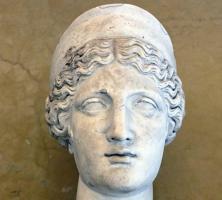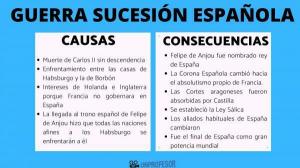Kant's thought

In this lesson from a TEACHER we offer you a brief summary of Kant's thought, one of the great philosophers of the Enlightenment. His philosophy is a synthesis between the empiricism and rationalism, an overcoming, by stating that the limit of knowledge is experience, but not all knowledge comes from experience. His philosophy (transcendental idealism) is critical since it investigates the limits and conditions of possibility of knowledge, both theoretical and practical in order to find the principles that move human behavior, as well as the conditions that make the human being free.
To know the thought of Kant it is important to know the four fundamental questions that Kant exposes in his work "On philosophical knowledge" since all his philosophy revolves around them.
- What can i know. A question that arises from the theory of knowledge and metaphysics and deals with the question of problem of knowledge and its limits and the answer to it is in the Critique of Reason Pure
- What should I do?. The answer is related to the level of ethics and morals, establishing the principles and conditions of the same. The answer is found in the Critique of Practical Reason
- ¿QWhat can I expect? This is a question of religion, which must be lived within the limits of reason and history.
- What is man?. It is an anthropological analysis, and it is a summary of the other three, being the human being, the subject of all the questions:
“Ultimately, all these disciplines could be recast in anthropology, because the first three questions revert to the last.”
Answer the question what can I know? requires pointing out the principles and limits of scientific knowledge.
Kant says that the work of Hume woke him up from his "dogmatic dreamAnd it leads him to investigate the limits of reason, and in the face of dogmatic philosophy, he is going to propose a critical philosophy. What it is about is to know if metaphysics as a science is possible, and for this, it is necessary to analyze the conditions of possibility of it. This will lead to transcendental philosophy.
Kant will distinguish between analytical and synthetic judgments, a priori and a posteriori. Thus, synthetic judgments are those in which the predicate is not included in the subject and therefore, broaden the knowledge. Synthetic judgments are those in which the predicate is included in the subject and therefore do not provide new knowledge. The former, therefore, are extensive, the latter are not.
On the other hand, these judgments can be a priori, if their truth can be known independently of experience, and they would be universal and necessary judgments and a posteriori if their truth is known from experience (particular and contingents). The most important judgments are the synthetic a priori judgments, which, because they are synthetic, expand our knowledge, and because they are a priori, they are universal and necessary.
The science judgments, are synthetic a priori judgments, since they expand knowledge and can be known independently of experience.
Synthetic a priori judgments
Now the question is,how are synthetic a priori judgments possible (Maths and physics)?
The fundamental task of this work is to answer this question, as well as to find out if they are possible in Metaphysics. The work is divided into three parts:
- The Transcendental Aesthetics, which deals with Sensitivity and the transcendental conditions (universal and necessary) that make sensible knowledge possible.
- The Transcendental Analytics, that studies the Understanding and here distinguishes the concepts, empirical, that come from the experience or a posteriori of the pure concepts or categories, which do not come from experience and are a priori: categories, substance, causality, Unit...
- The Transcendental Dialectic he studies Reason and the problem of whether Metaphysics can be a priori knowledge, concluding that this would be impossible as a science.
To explain his philosophical turn, Kant proposes an analogy with the copernican revolution, which consists of rejecting the traditional conception of knowledge, which understood the subject as passive, to consider it now active in the process of knowing. We can only know a priori about the things we have previously put into them, Kant would say. It is only possible, therefore, to know the phenomena, the manifestation and not the thing itself or noumenon (transcendental idealism).
To know the thought of Kant we also have to know the use of reason in this philosopher. Practical Reason deals with how the behavior of human beings should be, based on the fact that in the moral experience there is a moral fact, marked by an awareness of duty that is a determination of the will with the same characteristics as the act of knowing, that is, the universality and necessity.
It is about understanding the conditions of possibility of morality, just as it would have done with those of knowledge. Thus, it is duty that directs human action, an imperative, which can be hypothetical or categorical.
The hypothetical imperatives or problematic are rules of skill, rules of prudence, advice of sagacity. The categorical imperatives they have to do with duty. The will to want to do well will be decisive in this sense. The former are obeyed according to duty and the latter, by duty, or by moral law::
“Work in such a way that the maxim of your will can always be valid at the same time as the principle of universal legislation”
formulation of the categorical imperative collected in the Critique of Practical Reason.
Kant, I. Critique of Pure Reason. Ed. Alfaguara. 1999
Kant, I. Critique of Reason Practical. Ed. Alfaguara. 1999



